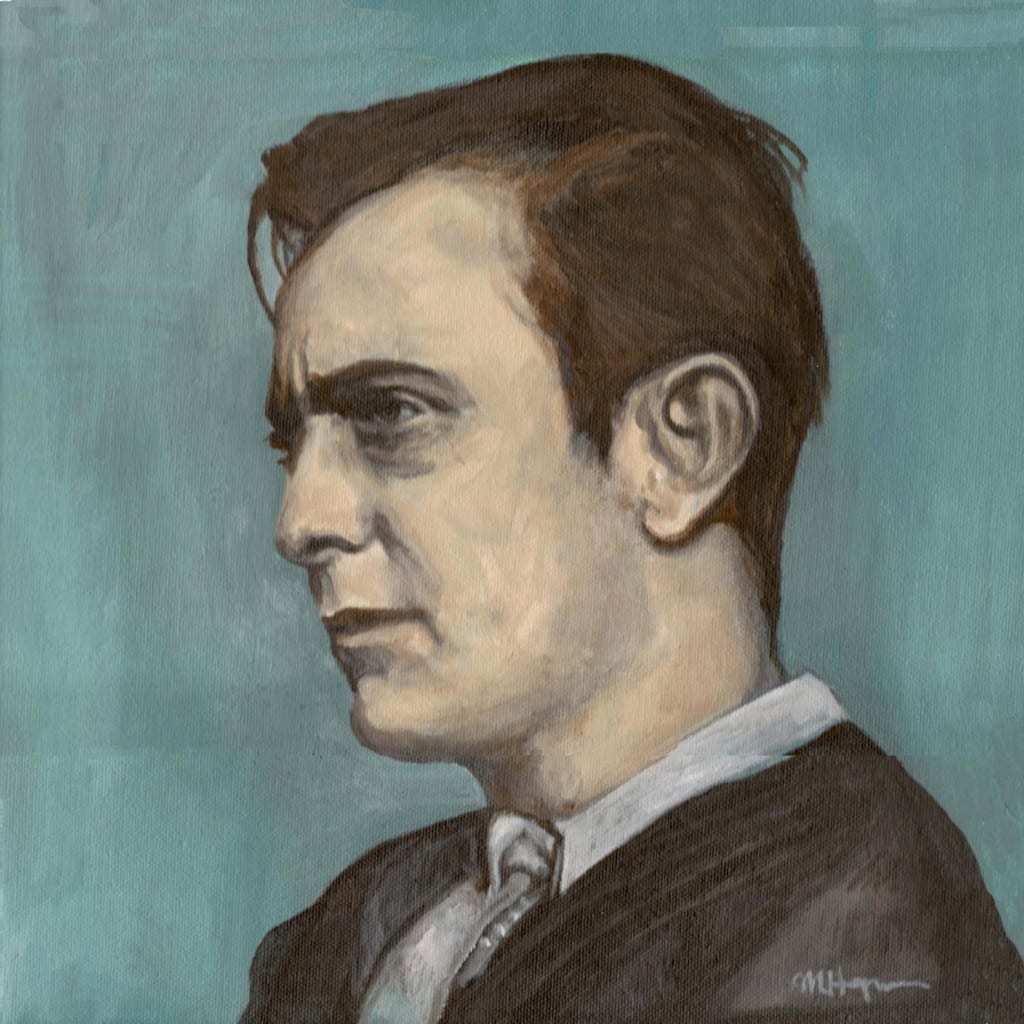4 Writing Lessons From John Fante — The Great Unknown Writer
Fante was supposed to be the next great American novelist — then Hitler intervened.

I read Ask The Dusk by John Fante some months ago, and I’m still reeling from the experience. By God, Fante is the best writer that nobody knows.
He has been called “the most criminally neglected writer of our times”, and I am inclined to agree. I, like so many others, only got introduced to Fante because of Bukowski’s high praise of him. Bukowski discovered Fante as a young man, and the Italian master’s rogue writing inspired him to no end. In his own writing, Bukowski famously said that,
“Fante was my God…here, at last, was a man not afraid of emotions.”
In this article, we’ll take a look at the success and subsequent oblivion of one of the greatest unsung writers of our time. We’ll look at how we can recreate his triumphs, and more importantly, avoid the mistakes he committed.
Let us begin.
Double Down On Your Own Unique Style
Here’s a sample of Fante’s flair:
“Almighty God, I am sorry I am now an atheist, but have You read Nietzsche?”
“Los Angeles, give me some of you! Los Angeles come to me the way I came to you, my feet over your streets, you pretty town I loved you so much, you sad flower in the sand, you pretty town.”
“Ah, Evelyn and Vivian, I love you both, I love you for your sad lives, the empty misery of your coming home at dawn. You too are alone, but you are not like Arturo Bandini, who is neither fish, fowl nor good red herring. So have your champagne, because I love you both, and you too, Vivian, even if your mouth looks like it had been dug out with raw fingernails and your old child’s eyes swim in blood written like mad sonnets.”
The best way to describe Fante’s writing style is everyday egotism sprinkled with romantic, almost poetic lyricism. Every line has a purpose, a distinct flavor. His words jump out at you; they feel like they are not typed down but somehow carved onto the blank page.
All masters of a craft eventually develop their own distinctive style. Hemingway wrote like this. Matter-of-fact. Often satirized. Have emotions? Strangle them. Bukowski’s stories are full of crass poignancy about life in the gutters of Los Angeles. And reading Neil Gaiman never fails to transport me to the old days, days of English magic, of boy-wizards zooming around on broomsticks and old cupboards with the uncanny ability to teleport children to make-believe lands.
They are master authors, one and all. And that is my point exactly. Beginner writers, like all artists, have a tendency to copy those who came before them. And that’s okay — imitation is the sincerest form of flattery, after all.
But there comes a time when the student has to graduate. To become — or even surpass, the master. And you can only do that experimenting with and then unabashedly implementing your own unique style in your work.
Many artists hesitate to do so because of fear. They’re afraid to break the rules, to deviate from the norms they’ve been a slave to since day one.
Little do they know that true artists are born to break rules.
Like a butterfly emerging from its chrysalis, we have to go through the uncertainty of metamorphosis to become who we are born to be: free-flying, hyper-individualistic writers with our own inimitable style. So feel free to explore, to craft, to create your own inner voice, the very voice that makes you, you. And when you find it, unleash it upon the world.
That’s how you make the leap from good to great. That's how you graduate from remarkable to unforgettable.
Never Lose Yourself In A Job You Hate — No Matter How Lucrative It May Be
Fante’s fall began when he was offered a job as a Hollywood screenwriter.
He asked his mentor, H.L Mencken, for advice. Mencken told him, “Take the money.” Fante ended up taking the job, but in doing so he would inadvertently trade his soul for cold, hard cash.
Fante hated scriptwriting, calling it hackwork — dull, original writing done solely to pull in a paycheque. He earned a decent living from writing screenplays, enough to support a house, his wife, and four kids. But this was a classic case of golden handcuffs, because after Hollywood, Fante rarely had the time or creative energy to do the one thing he truly loved — writing novels. A Faustian bargain if there ever was one.
I don’t want to put words into his mouth, but I think if given a chance for a do-over, he might’ve elected to starve for his art instead. I understand that he was living in Depression-era Los Angeles, a time where a steady paycheque was nothing to sniff at. But personally, I don’t see the sense of making good money now only to live out the rest of your days in regret, in the pain of what-could-have-been.
There comes a time where you’re going to be presented with a choice, an ultimatum: to take the safe way out and live out the rest of your days in a cocktail of relative comfort and regret — or to take a risk, starve for a few years, and have a real crack at making your dreams come true.
Choose wisely.
Understand The Business Aspect Of Writing
“Listen closely. There’s a remote possibility that you might learn something: First, I don’t give a damn if my work is commercial or not…I’m the writer. If what I write is good, then people will read it. That’s why literature exists. An author puts his heart and guts on the page.
For your information, a good novel can change the world. Keep that in mind before you attempt to sit down at a typewriter. Never waste time on something you don’t believe in yourself.” — John Fante
Fante, like many great artists, treated his craft with the utmost respect, and was consequently, a master of it. However, if I may be so forthright, he was not the best at the business side of things. This has to be said because this particular imbalance is common even among the artists of today.
Here’s a little-known fact: The debut of Ask The Dust was ruined by non-other than Hitler himself. Fante’s publisher thought it would be a fine idea to sell Mein Kampf without permission, and the Führer’s publishing house proceeded to sue them. Fante’s little novel was buried and forgotten. Ryan Holiday has a great article covering this mind-blowing story in detail.
Now, this is a series of unfortunate events. Nobody — least of all Fante, wanted this to happen. But that being said, he could’ve chosen to take control of the situation. To perhaps buy out the rights from his original publisher and shop his manuscript around. To do some marketing on his own. To do anything other than give up the ghost and take the screenwriting job he ended up hating so much.
Now, I am admittedly speaking out of turn. As I’ve mentioned before, Fante was living in a very different time. It’s not easy being a novelist in the age of The Great Depression, and with the Second World War looming and a family to feed, he might’ve felt like there was no other choice.
But the same cannot be said for you. You’re living in the Internet Era, the best time in human history to be a creator. There’s never been a better time to make a living from doing something you love. Unlike Fante, you have access to the world-wide-web, to the marketing powerhouse that is social media, to the possibility of self-publishing.
Use it.
Remember, many things can happen in the wild world of writing. The publishers are not out to screw you, but at the end of the day, their only responsibility is to their own bottom line. You should thus rely on agents, booksellers and publishers as little as possible, and on yourself as much as you can. So learn the business side of your craft. Take charge of your own career.
That is the best way to avoid Fante’s fate.
As Long As You’re Great At Your Craft, You Have a Chance At Redemption
Fante was rediscovered in the 70’s. By then, he was already old, blind and crippled, having had both his legs amputated due to diabetes. His books were also long out of print, his brief popularity fizzled out like a comet, his fame as a novelist all but forgotten.
Fante would have the last laugh, though.
When Bukowski, the afore-mentioned Fante fanboy, became famous, he sent a copy of Ask The Dust to his publisher, calling it the greatest novel of all time. When his publisher read the book, he was astonished. He wrote back to Buk, saying “Fante is fantastic, fantastic.” The publisher, John Martin from the now-legendary Black Sparrow Press, ended up reprinting Fante’s works. They are still in circulation today.
Fante, reinvigorated by the interest in his novels, wrote his last book, Dreams From Bunker Hill, by way of dictation. He dedicated it to his wife, Joyce, before passing on.
Fante’s Ask The Dust was published at pretty much the worst time possible. But here’s the beautiful thing about great works of art: they have the rare ability to withstand the test of time. This has been proven time and time again, by the likes of Fante, Van Gogh, Edgar Allan Poe, Kafka, Galileo, and more.
So each time you sit down, strive to create the best work you possibly can. At the end of the day, as artists, there is only one thing we can control.
The quality of our art.

Final Thoughts
“All that was good in me thrilled in my heart at that moment, all that I hoped for in the profound, obscure meaning of my existence. Here was the endlessly mute placidity of nature, indifferent to the great city; here was the desert beneath these streets, around these streets, waiting for the city to die, to cover it with timeless sand once more.
There came over me a terrifying sense of understanding about the meaning and the pathetic destiny of men. The desert was always there, a patient white animal, waiting for men to die, for civilizations to flicker and pass into the darkness.
Then men seemed brave to me, and I was proud to be numbered among them. All the evil of the world seemed not evil at all, but inevitable and good and part of that endless struggle to keep the desert down.”
The New York Times critic Janet Jaslin wrote that, “Either the work of John Fante is unknown to you or it is unforgettable. He was not the kind of writer to leave room in between.”
And I agree. Fante’s story is a bittersweet one. On one hand, it’s a tale of fickle fate and terrible luck. I mean, who’s publisher gets sued by Hitler himself — on the eve of his book debut, no less?
On the other hand, it is a tale of hope. Of how raw, mad, ferociously egocentric writing can find an appreciative audience, long after you’re dead. Of how stellar writing will always survive the test of time. Most of all, it’s a story of how a master’s work can inspire a student he doesn’t even know exists, and how the student can, many years later, return the favor.
Fante is long dead. Bukowski, too.
But their words will forever remain. They will make us laugh, make us cry, make us think, and yes, even make us write about them, long after they are gone. One of Bukowski’s poems goes like this:
“great writers are indecent people
they live unfairly
saving the best part for paper.
good human beings save the world
so that bastards like me can keep creating art,
become immortal.
if you read this after I am dead
it means I made it.”
And if this article isn’t proof that he’s right, that great writers can live forever, that Buk and Fante are up there somewhere sharing a beer and a laugh — quite possibly at our expense, I don’t know what is.







Comments
There are no comments for this story
Be the first to respond and start the conversation.